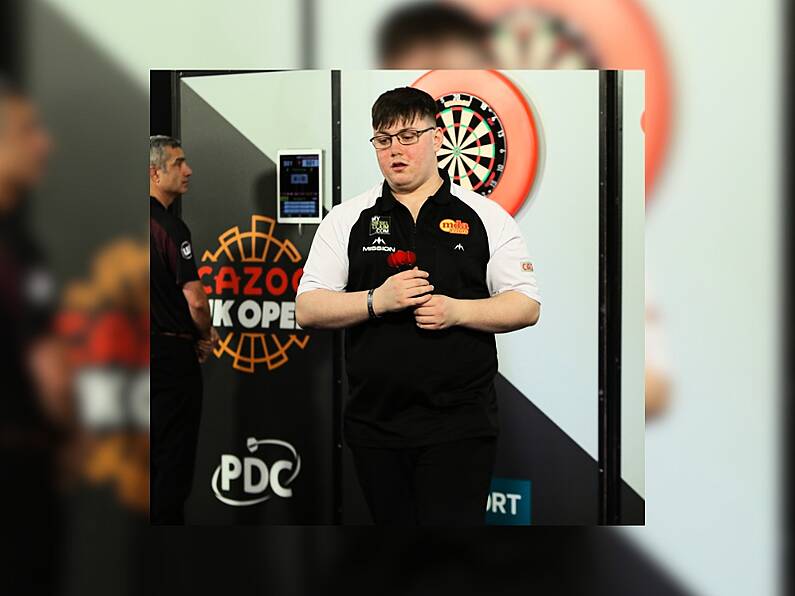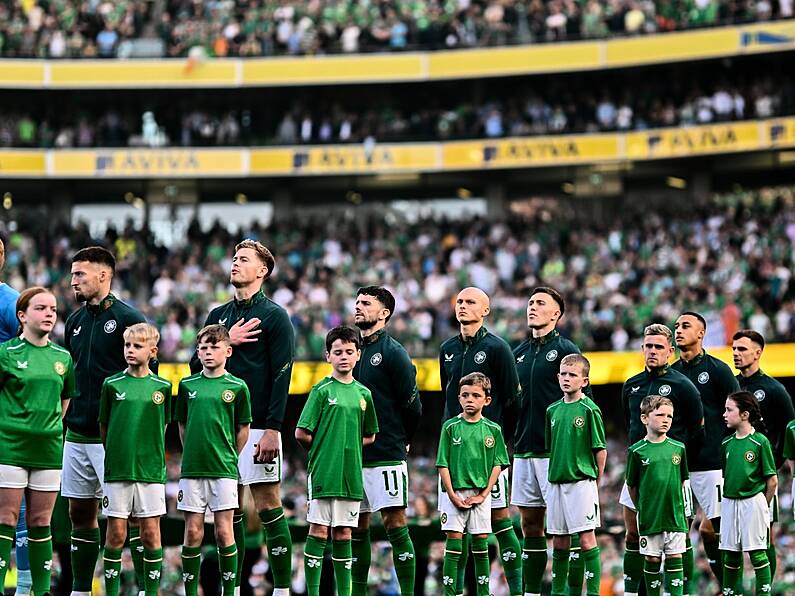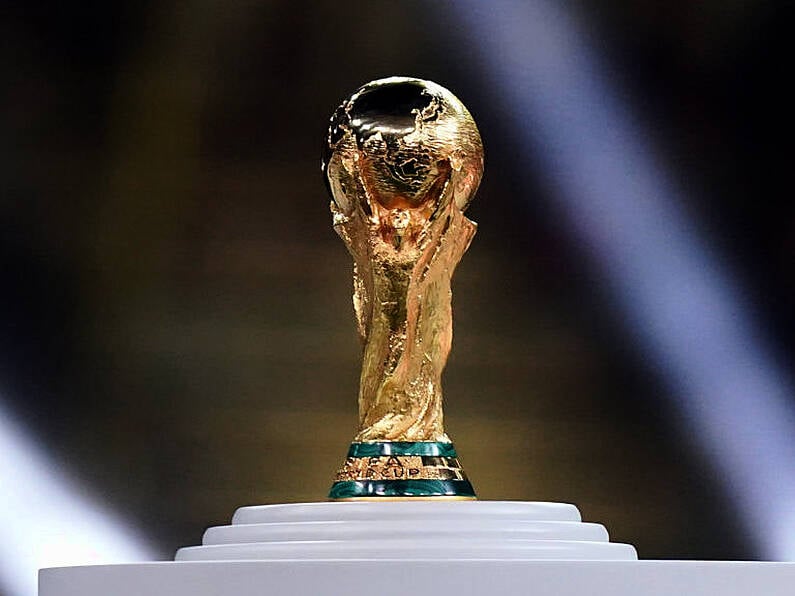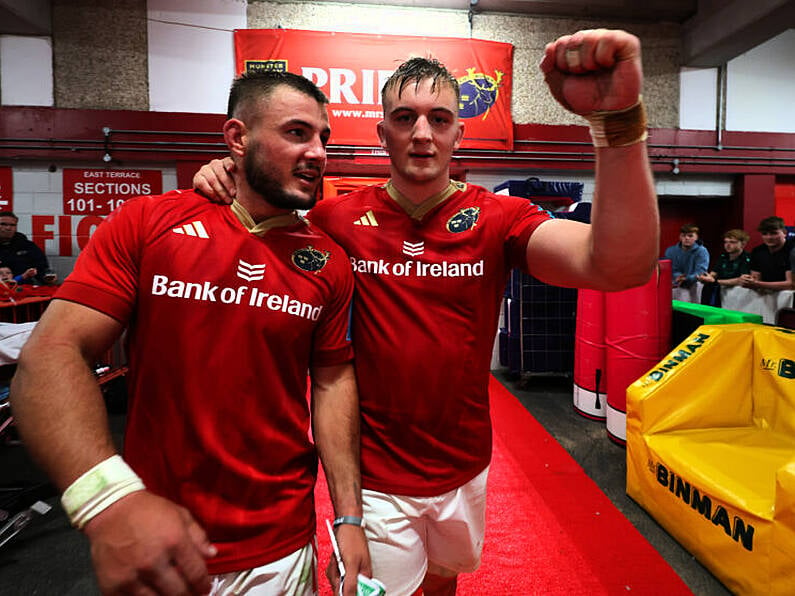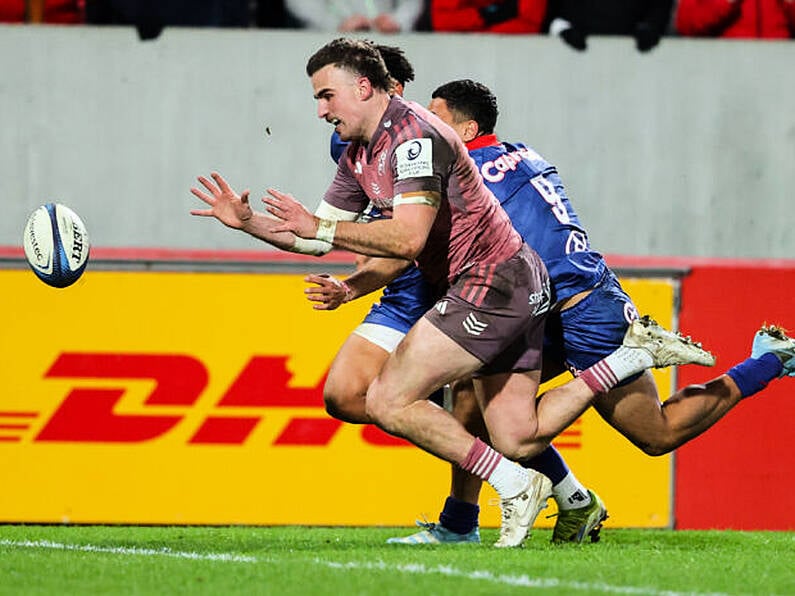The Irish women’s four of Aifric Keogh, Eimear Lambe, Fiona Murtagh and Emily Hegarty have won a bronze medal at the Tokyo Olympics after a thrilling race on Wednesday morning.
A first Olympic medal for the Irish in Tokyo, a first for Irish women’s rowing, with the promise of more to come soon.
A rematch of the 2019 World Championship race between Australia and the Netherlands in the women’s four did not disappoint, as Australia once again came out on top – this time, in a scorching 6:15.37 – and the Dutch took silver.
Ireland propelled past Britain in the last quarter of the race, securing bronze for the country's second-ever Olympic rowing medal.
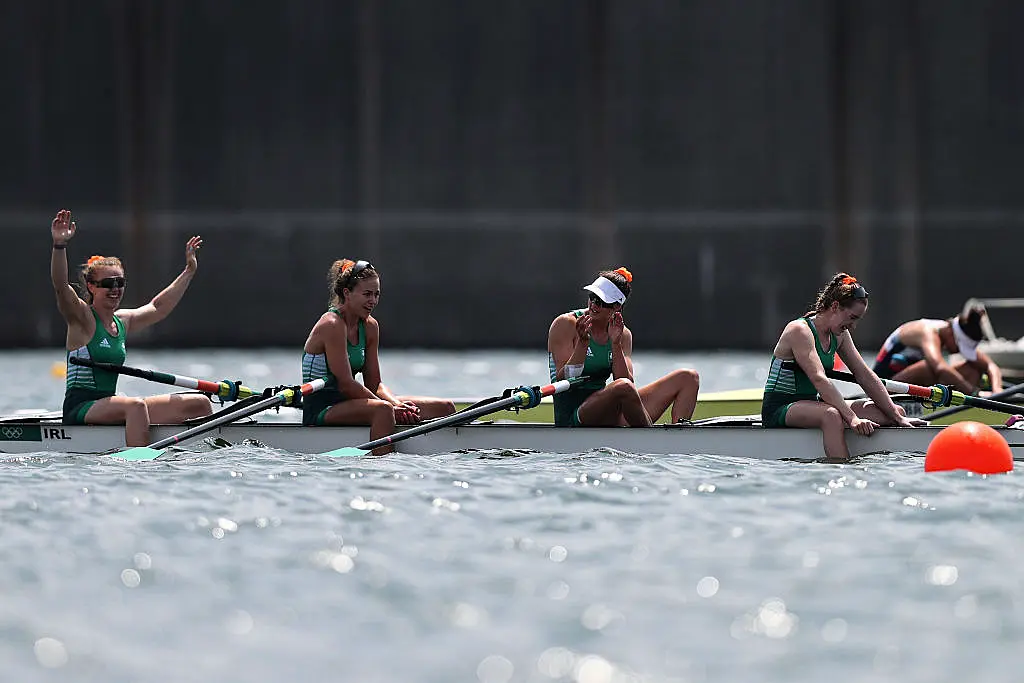
The team celebrate winning the bronze medal at Sea Forest Waterway in Tokyo, Japan. Photo: Naomi Baker/Getty
The quartet were lying fifth at the halfway mark and, as they passed the 1000m mark they pushed past China to increase the pressure on the GB crew, before passing GB in the closing stages of the race to take bronze in thrilling fashion.
Speaking after the race, the thrilled Irish crew described the strategies they worked with: “The race was a blur really, it went by so fast. Eimear was calling our strategies out, and it felt like she was calling them early, but then I looked out and we were at that point. It was very quick. It wasn’t the best race, but we always say we want to be the best on our worst day too, and we pulled that off.
“We always know that the second half is our stronger part, so we tried to stay with the pack as much as we can, so at this stage their strategies are probably to put as much time into us in the first half. And they did that!”
For Hegarty, the 25-year-old and latest off the production line of Irish rowing known as Skibbereen, part of the thrill of the race was in the enjoyment of it all.
“We could never experience anything like this again,” she told The Irish Times. “So it’s a case of enjoying it, living in it, it’s once in a lifetime.”
Murtagh agreed: “We definitely didn’t make it easy but Eimear made the call and we just all backed ourselves, backed each other, stayed really loose and just went for it.”
The Irish four only qualified late in May, though Keogh had quietly predicted big things, admitting the team had sent out their better boat to Tokyo in advance, before they had actually qualified.

Bronze medalists Aifric Keogh, Eimear Lambe, Fiona Murtagh and Emily Hegarty of Team Ireland pose with their medals during the medal ceremony for the Women's Four Final A. Photo: Naomi Baker/Getty
“We knew we could win a medal, it was just about whether we could pull it off,” said Keogh, the 28-year-old from Furbo, Co Galway.
“It was a bit touch and go. Throughout the race I was like, ‘we could be fourth, fifth.’ Eimear makes the strategy calls and I tell us where we are in the field. I was looking out and I was like, ‘Oh god,’ in my head, we were slipping back but we said to ourselves if that happens we go early and the last 1km we backed ourselves.”
Ireland also has a shot at gold in the lightweight men's double sculls after Paul O'Donovan and Fintan McCarthy won their semi-final in a world best 6:05.33.
Proud family
The father of Aifric Keogh has told of how their area of Co Galway has become an Olympic village.
The family watched the medal-winning performance from their home in Furbo, Jim Keogh told RTÉ radio’s Morning Ireland.
“It hasn’t sunk in yet. It was scary for a while,” he said.
The family stayed up until 5am watching the remainder of the rowing races and spoke to Aifric briefly, he said. “She was highly excited, they were still celebrating.”
In the past the family has always travelled to regattas, but could not travel to Japan because of Covid-19. “We lost out on the trip of a lifetime, but there will be other trips.”
Lockdown had not stopped training for the team who kept in touch via Zoom while also completing their own training routines. That was a benefit for the Keogh family as it meant Aifric lived at home for three months, training on the deck of the family home in a gym assembled by her father where she managed to break a world record for a half-marathon.
“It was very exciting to have her home during lockdown. This year we’ve seen her only once since Christmas,” explained Mr Keogh. Prior to the Olympics Aifric and teammate Emily Hegarty were living and training full-time in Cork.
Mr Keogh said that his daughter is “pretty calm” and would keep the team steady. He anticipated that she would be back home on Sunday. – Additional reporting: Vivienne Clarke


